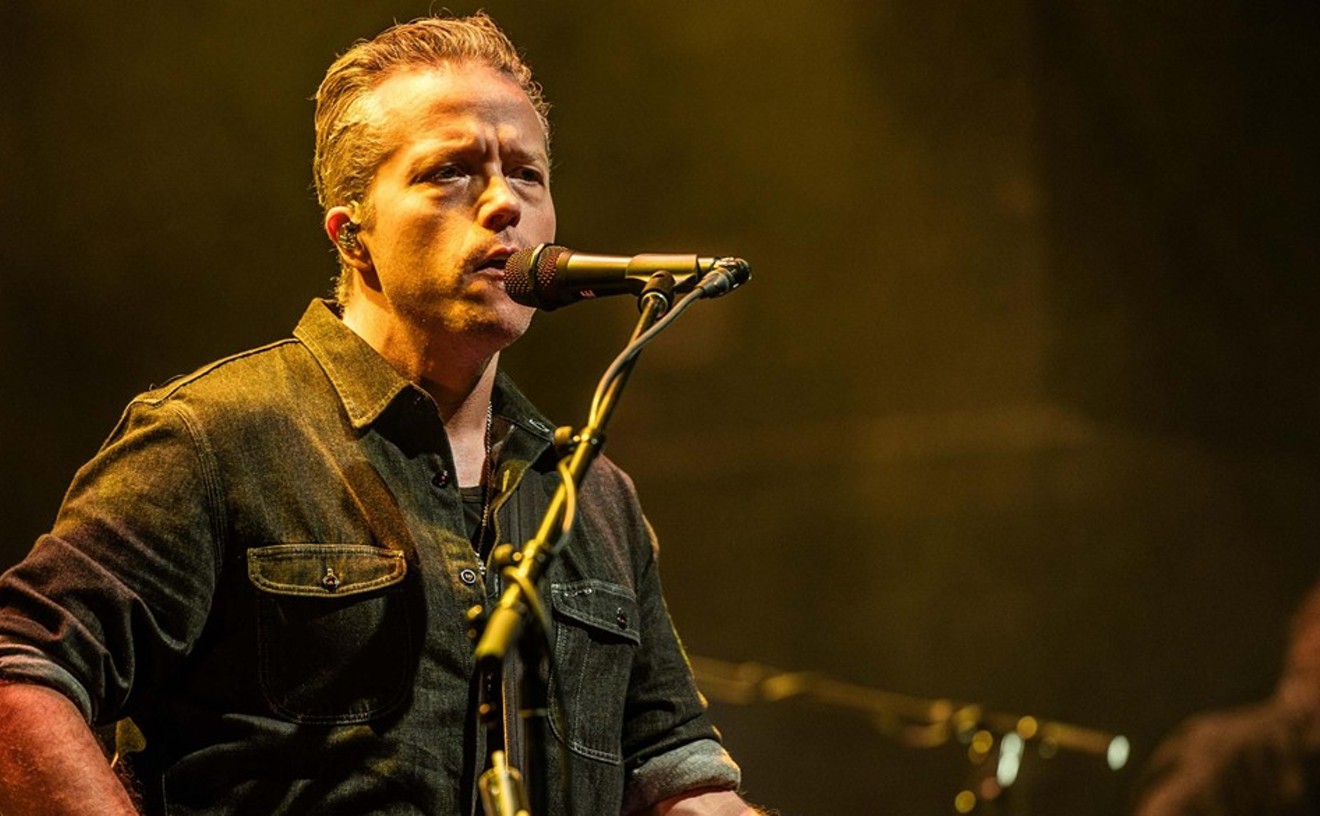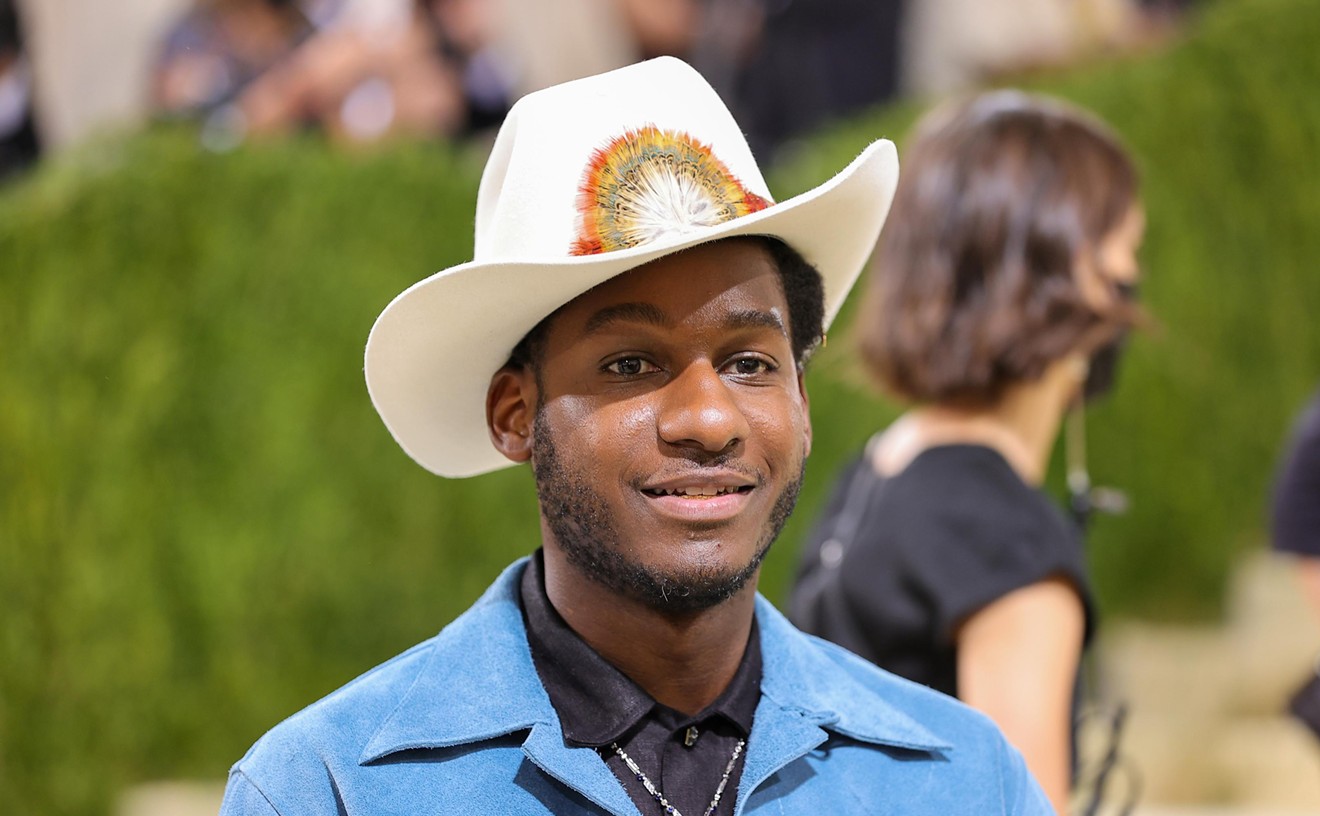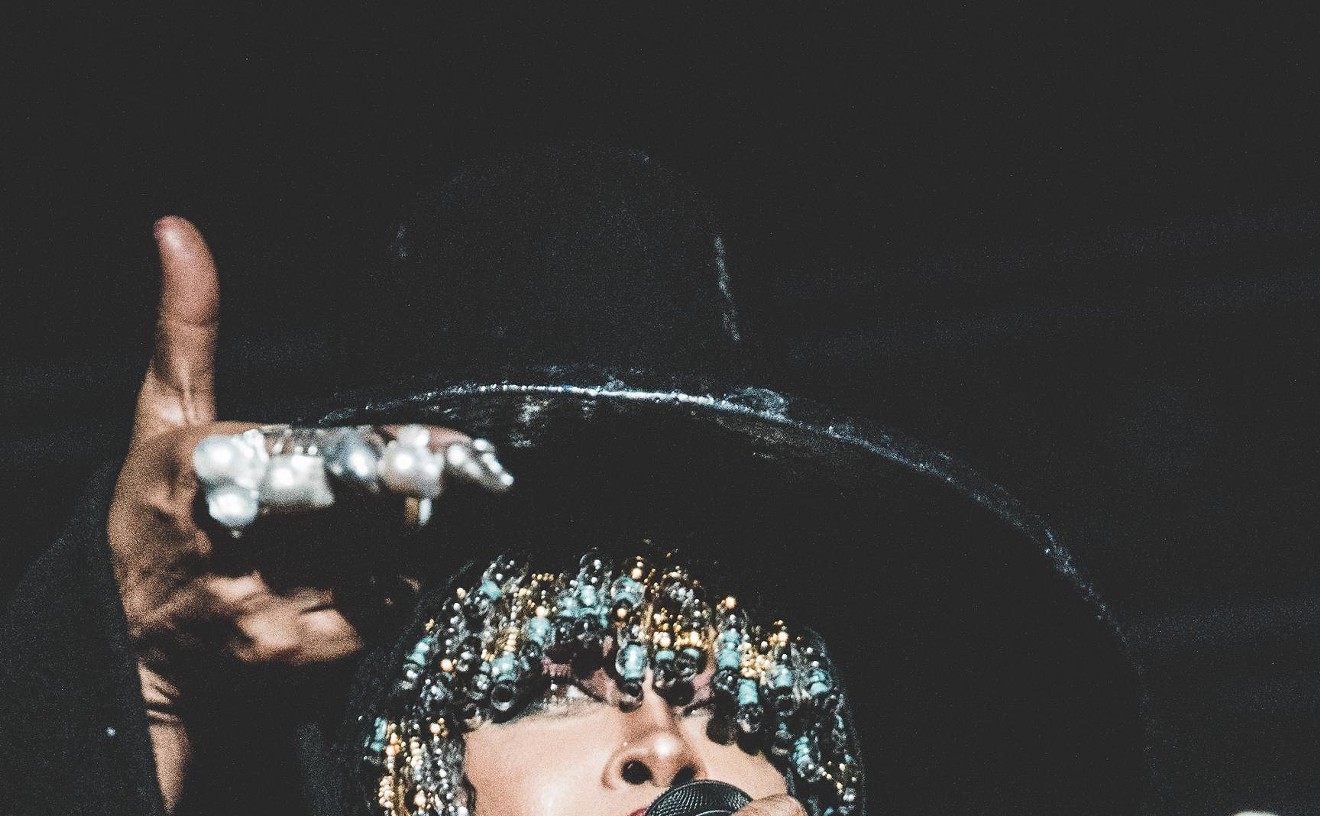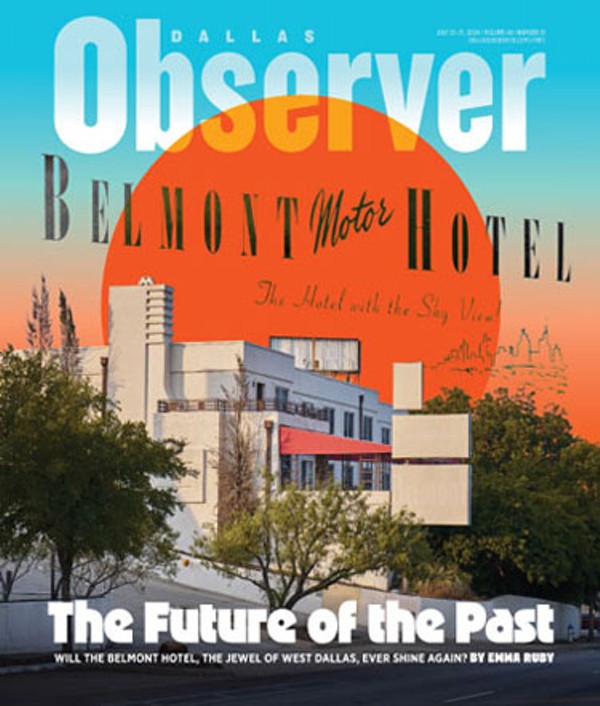A favorite pastime of audiophiles is digging for new music, and one of the most obscure vaults to be explored lies in the musical catalogs of acts known as one-hit wonders. Many artists with only one chart appearance have been blessed by the passing of time, causing acts like Thin Lizzy to reach a wider audience through the years — an audience not informed only by chart success or radio circulation. Here are 10 songs by artists who deserve recognition beyond their one hit.
The Buggles
The song you know: “Video Killed the Radio Star”
The song you should know: “The Plastic Age”
It’s funny to think that the song that defines not only the onset of the MTV generation but the overall sound of the '80s was written and released in the 1970s. In 1979, when The Buggles made “Video Killed The Radio Star,” the first music video to play when MTV made its debut, the sea change was still two years away. The pair found much greater success in their individual pursuits (singer/bassist Trevor Horn produced practically every great pop song in the '80s, and keyboardist Geoffrey Downes enjoyed massive commercial success as a member of Asia and currently holds down keys for Yes). But their flash-in-the-pan career as a duo created some of the most irresistible synth-pop deep cuts of the decade. “The Plastic Age” has enough hooks to fill a Foster the People record and clever lyrics such as “They send the heart police to put you under cardiac arrests.” Gotye
The song you know: “Somebody You Used to Know"
The song you should know: “Eyes Wide Open”
OK, let the “Gotye is somebody we used to know” jokes ensue. The fact that prolific and gifted multi-instrumentalist Wally De Becker aka Gotye has yet to follow up his breakthrough album Making Mirrors with any new music is a bit of a shock, especially considering the album and song that made him a star came out over a decade ago. Making Mirrors is undoubtedly one of the most musically diverse LPs to yield a Billboard No. 1 hit, and for no less than eight consecutive weeks. A quick scroll though the album reveals a kind of indie-art-pop playground found only on the playlists of the coolest bartenders or most pretentious hipsters you know. Gotye’s knack for melodic composition brings us to the album’s lead single, “Eyes Wide Open,” a track that, while released ahead of “Somebody That I Used to Know” (and perhaps because of that) barely dented the Billboard Hot 100. Its creator had enough faith to feature it as the other song he performed during his May 2012 SNL appearance. Until Gotye releases a new LP, whenever that may be, Making Mirrors continues to give to those who search beyond the artist's one hit. Billy Thorpe
The song you know: “Children of the Sun”
The song you should know: “Most People I Know Think I’m Crazy”
In Australia, Billy Thorpe is a national icon, the Aussie equivalent of Sammy Hagar. But to us, he is known only for his 1979 minor rock hit “Children of the Sun.” At the height of their fame, Thorpe and his band The Aztecs were proclaimed “the loudest band in the land,” making waves with their ridiculously furious hard rock performance at the 1974 Sunbury festival and the live album that resulted from it. During that show, Thorpe played an early version of what would become his signature song, “Most People I Know Think I’m Crazy,” a song that feels like it should be a staple of drunken bar singing everywhere, alongside “Margaritaville” and “Lukenbach, Texas” but with a little more bite. The Verve
The song you know: “Bitter Sweet Symphony”
The song you should know: “Slide Away”
The Verve’s story is generally focused on one song, the masterful “Bitter Sweet Symphony” and the royalty battle that ensued over its sampling of an orchestral version of a Rolling Stones song. Audiences (particularly in America) are generally oblivious to anything else the band created, let alone their psych-rock origins. The group's debut album, A Storm in Heaven, brought together disparate styles drawing from the likes of Dr. John, The Stooges, Cocteau Twins and Can. Producer John Leckie slathers a layer of sonic rainbows that few bands were willing to indulge in since Hawkwind.
Tom Tom Club
The song you know: “Genius of Love”
The song you should know: “Sunshine and Ecstasy”
This one almost feels like cheating, as Tom Tom Club was originally the pure funk outlet for Talking Heads husband-and-wife rhythm section players Chris Frantz and Tina Weymouth. Their self-titled debut LP yielded “Genius of Love,” one of the most irresistible and ubiquitous funk songs ever released. While the band’s subsequent work took a backseat to Talking Heads’ ballooning success and succumbed to its own unashamed ridiculousness, it remains a hidden gem of that '80s/'90s borderline of funk bleeding into freestyle. “Sunshine and Ecstasy,” from 1991, exemplifies this, complete with deep-voiced interjections and Frantz's rapping. Ridiculous or not, it’s hard not to dance to it at least a little. New Radicals
The song you know: “You Get What You Give”
The song you should know: “Someday We’ll Know”
Few pop songs, of any decade, are as good as “You Get What You Give.” Who knows how it happens, but New Radicals frontman Gregg Alexander seems to have some grasp on genius songwriting. In some ways, their early popularity might have been a curse; despite the quality and consistency of New Radicals’ only LP Maybe You’ve Been Brainwashed, the band never found pop success again. The band’s follow-up single “Someday We’ll Know” is a microcosm of what makes New Radicals a creative force, hushed yet sharp in its observation. Not to mention, it was later covered by America, of all bands (yes, “Horse With No Name” America). After New Radicals disbanded, Alexander co-wrote “The Game of Love,” recorded by Santana with Michelle Branch, and “Lost Stars,” sung by Adam Levine for the soundtrack of the musical romance film Begin Again. Not bad. Blind Melon
The song you know: “No Rain”
The song you should know: “Galaxie”
Of all the drug casualties of the '90s, few are as overlooked as the loss of Blind Melon frontman Shannon Hoon. While the pure bliss of “No Rain” has become lodged in the brains of Gen X as an instant source of serotonin, Blind Melon never quite fit in with their grungier Seattle contemporaries, as the band was constantly in musical flux, exploring shades of psychedelia and roots rock that were lightyears from the angst and volume of the flannel-clad flag-bearers of the scene, Nirvana and Pearl Jam. The band’s second album, Soup, was an extension of this musical exploration, and its opening track is about as head-spinning as any band of the '90s on a major label was willing to get. The horns give way to guitars, the guitars give way to barroom sway. It's a shame the band never got the recognition (or time) they deserved. A Flock of Seagulls
The song you know: “I Ran (So Far Away)”
The song you should know: “Space Age Love Song”
Yes, Mike Score’s laughable haircut and the ubiquity of “I Ran (So Far Away)” have kept A Flock of Seagulls from being anything other than an '80s punchline for nearly 40 years now, but it’s the band’s self-titled album’s other jewel of a single that shines among all the jokes. “Space Age Love Song” may be the perfect distillation of every musical aspect that A Flock of Seagulls was going for: a post-punk/synth-pop that in hindsight is cheerful enough to give The Cure’s “Just Like Heaven” a run for its money and stands tall alongside “Take On Me,” “Just Can’t Get Enough” and nearly any other '80s synth-pop classic imaginable. If only millennials didn’t think of Chandler Bing when looking up A Flock of Seagulls, we’d have an easier time spreading the word. Rickie Lee Jones
The song you know: "Chuck E’s in Love"
The song you should know: “Pirates (So Long Lonely Avenue)”
Rickie Lee Jones found a perfect niche between the slick California jazz-rockers and singer-songwriters of the late '70s: the kind of music that required a small army and an excess of patience to spare — not so much “yacht rock” as “Griffith Park rock.” Jones’ breakthrough single “Chuck E’s in Love” is one of the most lively and hummable songs to emerge from a decade that produced quite a bit of hummable music, yet she never found that kind of pop success again, despite being lauded by critics and her peers alike. Her self-titled debut album and its follow-up, Pirates, are smooth and verbose affairs, evoking Joni Mitchell’s meditative songsmithing and Stevie Nicks’ warmth through Jones’ distinctly beatnik persona. The albums are filled mostly with piano travelogues and jazzy dirges, but the title track to her sophomore LP is the closest Jones ever came to revisiting the “Chuck E’s in Love” style. It’s a song so breezy and tied up in its deviant characters it could pass for Steely Dan. Los Bravos
The song you know: "Black is Black"
The song you should know: “Bring a Little Lovin’”
“Black is Black” might as well be a Beatles song. It’s a hook and riff that nearly everyone from Paul McCartney to Tony Iommi must envy and curse because they didn't write it themselves. While the band behind it, Madrid’s Los Bravos, were not a part of the British invasion, their Spanish roots led to a decidedly more R&B take on the pop craze sweeping the world. The band’s success ended when “Black is Black” and its shockingly good parent album fell off the charts, but Quentin Tarantino’s endless crate-digging paid off for both him and Los Bravos when he included “Bring a Little Lovin” on the soundtrack to his love letter to the pre-Manson '60s in Once Upon a Time in Hollywood.
[
{
"name": "Air - MediumRectangle - Inline Content - Mobile Display Size",
"component": "18855504",
"insertPoint": "2",
"requiredCountToDisplay": "2",
"watchElement": ".fdn-content-body",
"astAdList": [
{
"adType": "rectangle",
"displayTargets": "mobile"
}
]
},{
"name": "Editor Picks",
"component": "17105533",
"insertPoint": "4",
"requiredCountToDisplay": "1",
"watchElement": ".fdn-content-body",
"astAdList": [
{
"adType": "rectangle",
"displayTargets": "desktop|tablet"
},{
"adType": "rectangle",
"displayTargets": "desktop|tablet|mobile"
}
]
},{
"name": "Inline Links",
"component": "18349797",
"insertPoint": "8th",
"startingPoint": 8,
"requiredCountToDisplay": "7",
"maxInsertions": 25
},{
"name": "Air - MediumRectangle - Combo - Inline Content",
"component": "17105532",
"insertPoint": "8th",
"startingPoint": 8,
"requiredCountToDisplay": "7",
"maxInsertions": 25,
"watchElement": ".fdn-content-body",
"astAdList": [
{
"adType": "rectangle",
"displayTargets": "desktop|tablet"
},{
"adType": "rectangle",
"displayTargets": "desktop|tablet|mobile"
}
]
},{
"name": "Inline Links",
"component": "18349797",
"insertPoint": "8th",
"startingPoint": 12,
"requiredCountToDisplay": "11",
"maxInsertions": 25
},{
"name": "Air - Leaderboard Tower - Combo - Inline Content",
"component": "17105535",
"insertPoint": "8th",
"startingPoint": 12,
"requiredCountToDisplay": "11",
"maxInsertions": 25,
"watchElement": ".fdn-content-body",
"astAdList": [
{
"adType": "leaderboardInlineContent",
"displayTargets": "desktop|tablet"
},{
"adType": "tower",
"displayTargets": "mobile"
}
]
}
]












